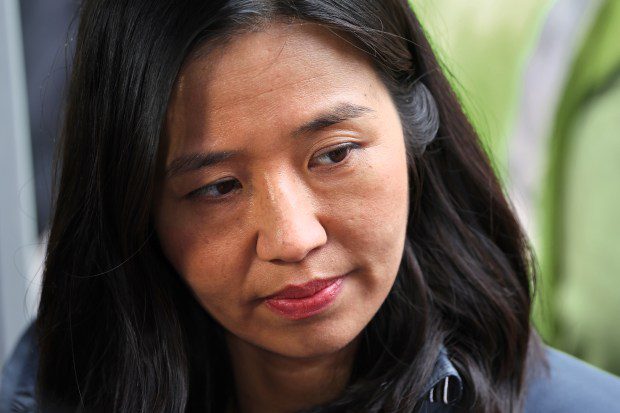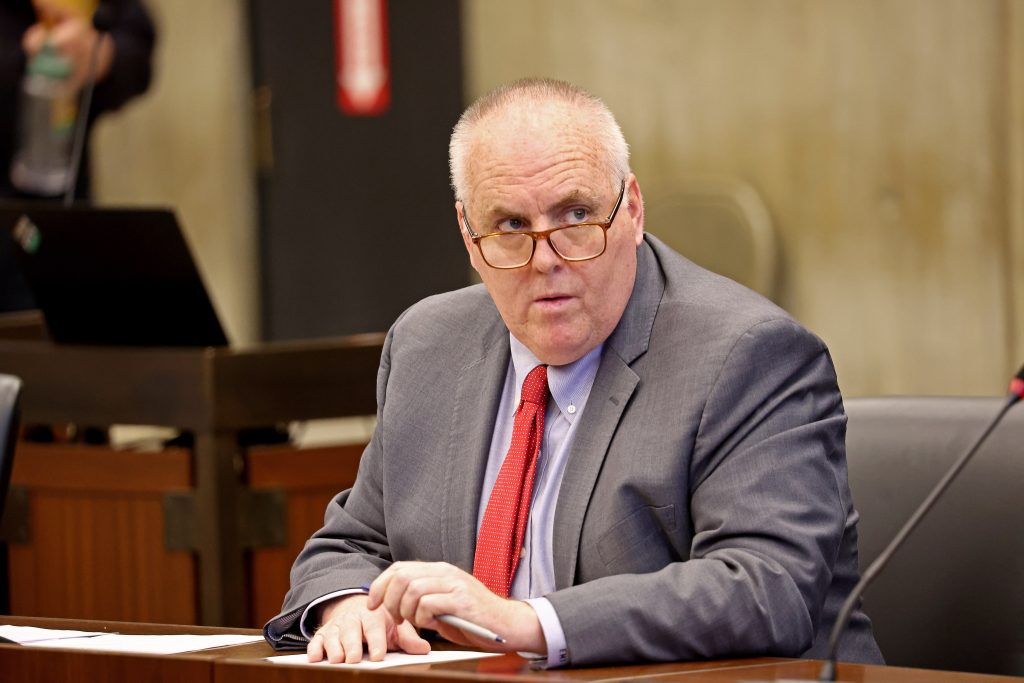Boston City Councilor Ed Flynn publicly opposed the mayor’s suggested idea to raise property taxes on businesses beyond the state limit, stating that this would have a negative effect on an already struggling downtown office market.
Flynn, according to a statement from his office, decided to reject a home rule petition Mayor Michelle Wu submitted to the City Council this week after consulting with business leaders, residents, and the authors of a recent report that cautioned about the city’s declining commercial tax base potentially causing a $1 billion-plus budget gap in five years.
Wu argues that the proposal, which Council President Ruthzee Louijeune referred to the government operations committee at Wednesday’s meeting, is essential to mitigate a significant increase in residential property taxes that is likely to occur due to decreasing commercial property values resulting from vacant office buildings. She asserts that commercial property taxes would still decrease, but not as much.
“Councilor Flynn, the District 2 councilor representing parts of downtown Boston and the South Boston waterfront, is worried about the potential negative impact of an increase in commercial property taxes on the already struggling downtown office market, where 20.1% of offices are vacant due to post-pandemic challenges and shifts to remote work,” his office announced Wednesday.
His office further stated that Flynn, the previous term's president of the body, is “alarmed about reports of exacerbating current issues in an already struggling development and real estate industry, with the potential to lead to an urban doom loop — where cuts to city services would make Boston less attractive and further drive down property values.”
The councilor’s statement adds that Boston has experienced “significant growth” over the past two decades, but has also become “increasingly reliant” on property taxes, which now make up 75% of the city’s annual budgetary revenue, with 36% coming from commercial property taxes.
Flynn said his opposition was influenced in part by discussions with representatives from the Center for State Policy Analysis at Tufts University, which, in conjunction with the Boston Policy Institute, published a report last month projecting a 20-30% anticipated decline in the value of office space by 2029.
According to the report, this will result in a cumulative revenue shortfall of $1.2-$1.5 billion over the next five years for the city and will lead to a “new normal” where annual tax collections starting in 2029 will be around $500 million less than the current trend.
A Wu spokesperson challenged the report’s findings on Wednesday, stating, “A decrease in commercial property values does not lead to a decrease in revenue. It leads to an increase in the tax rate for residential taxpayers.”
Flynn argues that his opposition to the mayor’s home rule petition, or “any measure to raise commercial property taxes,” builds on his previous Council efforts aimed at addressing downtown office vacancies, considering changes to a program seeking voluntary payments from tax-exempt nonprofits to generate revenue, and cracking down on remote work for city businesses to bring foot traffic back to the area.
According to Flynn, our city can't afford for all parts of our economy to keep working from home and causing commercial property values to drop. He also doesn't think it's the right time to raise property taxes for businesses or residents.
It's unclear if other Council members will also oppose the plan like Flynn did. He and Erin Murphy, another moderate Democrat, were the only ones who voted against a resolution supporting a tax on big real estate transactions.
Wu wants to introduce a new tax to reduce the city's reliance on property taxes, but industry groups are strongly against it.
If approved, the mayor's petition would let cities shift more of the tax burden from residents to businesses, even beyond the current state limit. This could happen in the next fiscal year starting July 1.
The petition aims to gradually increase the commercial tax rate over the next few years before returning to the state limit. This idea was suggested by former Mayor Thomas Menino and approved by Gov. Mitt Romney in the early 2000s.
The business community has criticized the proposal, but Wu says it won't harm the commercial sector. She claims that the taxes will still go down and that the goal isn't to make more money.
During a press briefing, Wu explained that the goal is to avoid a sudden and severe impact on residential property owners, which could hurt both residents and businesses.










